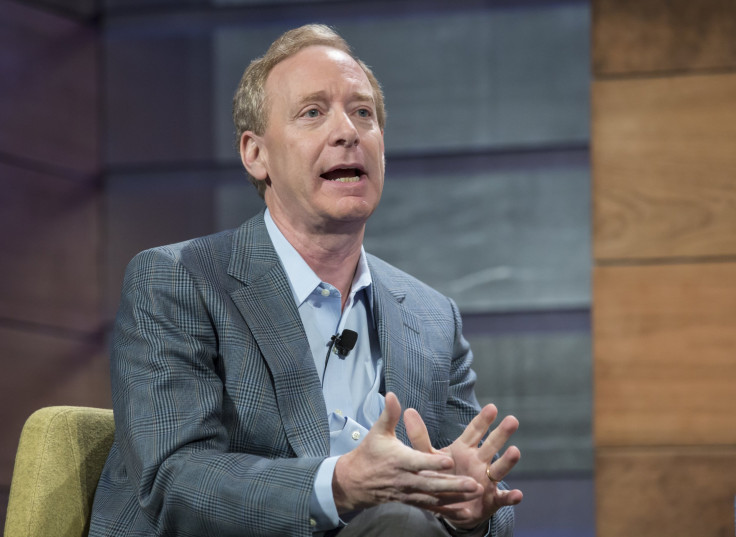Microsoft Stands Firm With Apple In Encryption Debate: ‘The Path To Hell Starts At The Backdoor’

Microsoft wants Congress and encryption experts to work together on a fair, legal solution to the security debate fueled by the FBI asking Apple for access to the San Bernardino shooter’s iPhone. “The path to hell starts at the backdoor, and we need to make sure that encryption technology stays strong,” said Brad Smith, the company’s chief legal officer, at the RSA Conference in San Francisco on Tuesday.
Describing technology as the “engine of change,” Smith said it had to work in conjunction with the law to adapt to changing landscapes. “No one person has all the answers,” he said at the cybersecurity event. “We need to have a conversation.”
The debate heated up after an order from the FBI to unlock an iPhone 5C belonging to one of the two San Bernardino shooters, who died in a confrontation with police after killing 14 people at an office holiday party Dec. 2. Apple said in February that devising a way to bypass iPhone passcodes would undermine security, expose the operating system to hacks, and set a dangerous precedent.
At the same time, Microsoft is waiting on a court decision after it chose in September 2015 to appeal a ruling that said it had to hand over emails related to a drug trafficking case. Microsoft argues that the U.S. search warrant concerns data stored in the U.S., and as the emails are stored on a server in Ireland, the warrant does not cover them.
The two cases cover different areas of tech, but both concern the reach of government and the protection of personal information. Smith called for all to stand with Apple in its fight, and quoted Steve Jobs by saying that engineering and liberal arts advocates needed to work together and help.
Microsoft supports a bill introduced Monday by Sen. Mark Warner, D-Va., that aims to bring encryption experts into Congress to work toward an ideal solution for the encryption debate.
Bill creating digital security commission intro’d today w/ bipartisan support on both sides of Capitol Hill: 8 Senate, 16 House sponsors.
— Mark Warner (@MarkWarner) February 29, 2016
Smith said the debate is about ensuring trust in technology. People want to be able to store sensitive information on their devices, safe in the knowledge that they understand who has access and that their data is safe. “The world is going to trust technology only if the law can catch up,” said Smith.
© Copyright IBTimes 2025. All rights reserved.




















